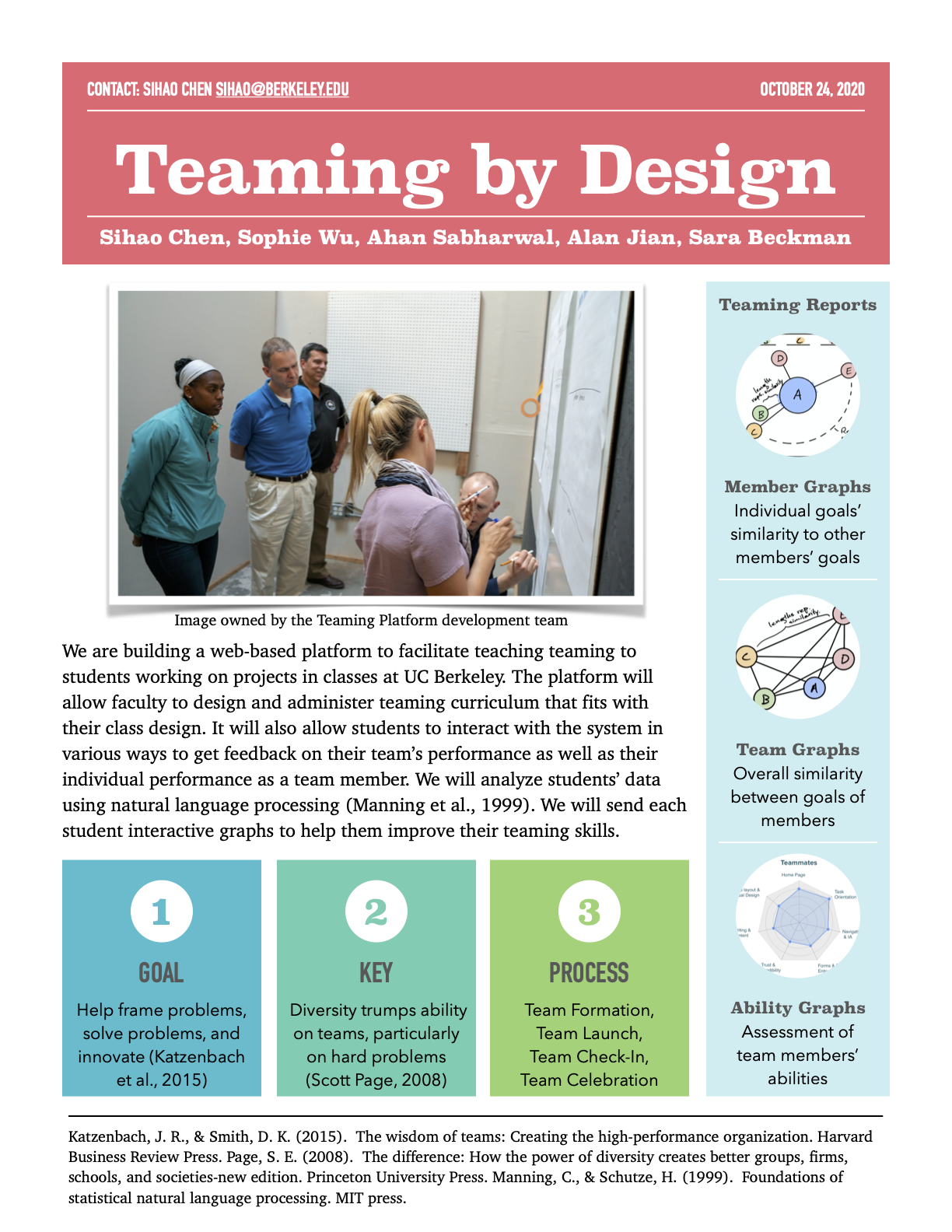Sihao Chen (Benny)
UC Berkeley EECS MEng 21'
Building a Serverless Student Survey Platform
Published Nov 11, 2020
The presentation slides can be found here.
I am a part-time full-stack software engineer at UC Berkeley Haas School of Business. My team is developing the Teaming by Design Platform, a web-based platform to organize student groups in class projects.
The goal of building this platform is to facilitate teaching teaming to students working on group projects. The platform will allow faculty to design and administer a teaming curriculum that fits with their class design. It will also allow students to interact with the system in various ways to get feedback on their team’s performance as well as their individual performance as a team member.
A study show that good teaming skills allow teams to frame and solve problems better, and ultimately to innovate better. Another research group studied students who have taken classes in which they engage in team-based projects. The study shows that learning about teaming is one of their most important takeaways even years after graduation. Our project integrates academic research and industry practices, and is implemented using methods and exercises from the design field. This creates an engaging atmosphere which encourages students to learn. We hope to grow the teaming capabilities of individuals, develop inspiring and supportive team leaders, and catalyze teams’ progress towards innovative outcomes.
Our platform provides a set of resources to guide the teaming process and mediate challenging scenarios. The first step is team formation, where we help students align around a shared idea and gain insight into potential team members’ individual ways of working. In this step, We will conduct learning style inventories and help them understand innovation as a learning process. The major inventory being used is the Big Five Inventory, a self-report inventory designed to measure personality traits. The second step is team launch. We generate empathy for team members by conducting individual profiles for each student, yield insight into best practices of teams, establishes initial project goals, and do collaborate plans. The third step is Team Check-In. We create a space for feedback and reflection that ensures team members remain engaged throughout the project duration. The last step is Team Celebration. In this step, we help students reflect on future improvements on an individual- and team-level.
Our engine is built upon Firebase, a framework that allows web services to run on Google Cloud Platform. The engine is able to capture data from a variety of sources and store it in a database. Students may also input individual goals for their development as team members. We will then analyze the data using machine learning models. Finally, we will visualize our data and send each student a slew of interactive graphs to help them better understand whether team members are on the same page or not, as well as help teams see more nuanced details and perspectives that each student has. By facilitating opportunities to learn to team, we hope that individuals will become more adept at framing and solving problems, which can lead to exponential impact for themselves, their organizations, and society.
Here is a poster I made for our project:
